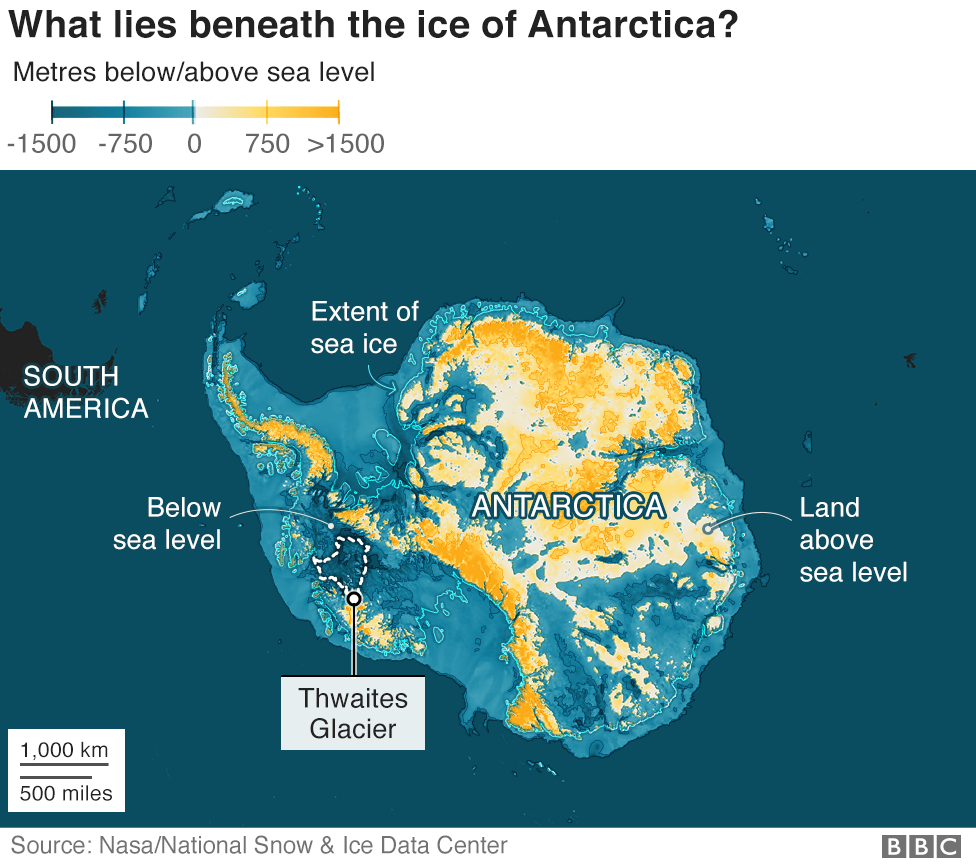To: Eleutheria5
I am puzzled. Is the Thwaites Glacier spread out over water, or is it based on land? If the upwelling warmer water is only under the portion that is now floating on top of the ocean waters, then there will be NO CHANGE in sea level. A melting ice cube does not increase the volume of the water within the vessel in which it floats. If there is glacier that is not yet afloat in ocean water, then how does the upwelling warm water get beneath it?
Logic is not the leading skill of this organization.
15 posted on
05/24/2024 9:11:45 AM PDT by
alloysteel
(Most people slog through life without ever knowing the wonders of true insanity.)
To: alloysteel
You error is in assuming fear of catastrophe has anything to do with reality.
20 posted on
05/24/2024 9:23:04 AM PDT by
Lou Foxwell
(The bleak winter of catastrophe is upon us.)
To: alloysteel
This is true. Ice cubes melting in a glass of water will not cause the water to over flow the glass. The volume of water has already been displaced by the ice.
25 posted on
05/24/2024 9:26:26 AM PDT by
4yearlurker
(Arise and shine,and give God the glory!-A trail cook's morning call.)
To: alloysteel
I am puzzled. Is the Thwaites Glacier spread out over water, or is it based on land?
************************
I think most glaciers in Antartica sit on land but protrude some over the water. So technically not floating.
To: alloysteel
A glacier by definition is on land. A chunk of glacier that has broken off and made its way into the water (sea/ocean) would be an iceberg.
At least based on my understanding of the terms (limited though it may be).
30 posted on
05/24/2024 9:42:24 AM PDT by
jurroppi1
(The Left doesn't have ideas, it has cliches. H/T Flick Lives)
To: alloysteel
There’s a map within this article that details the topography of the glacial base, and is ALL below sea level. Much of it WAY below.
https://phys.org/news/2023-05-ground-beneath-thwaites-glacier.html
For the purposes of THIS thread, the “money quote” is this:
“Much of the ice sheet is below sea level and susceptible to rapid, irreversible ice loss that could raise global sea-level by over half a meter within centuries.”
So... there ya go: “within centuries”; exact number unknown. Might be three. Might be 30.
Who can say?
Once again, “science” invokes a vague, and stupidly long timespan to sustain panic. Because being honest that the impact is on the order of an inch, or maybe half of one, every hundred years kinda doesn’t stir up the rabble enough to swarm the National Mall, scream, rail, agonize, and fornicate, and leave behind their customary 13 tons of garbage.
I might be pardoned for feeling uniquely uncompelled to take the least action whatsoever.
69 posted on
05/24/2024 2:02:58 PM PDT by
HKMk23
(https://youtu.be/LTseTg48568)
To: alloysteel; rlmorel; SunkenCiv; Liz; GOPJ; qaz123
Hey alloysteel, I spent an hour surfing the web for info on this now-famous "Doomsday Glacier": here's what I found. First of all there's a chart from NASA and BBC below that clearly shows this glacial area is below sea level. That suggests the glacier is sitting mostly over seawater, not land, so your floating ice cube hunch seems to fit :- )
Other things I learned in no particular order:
- The U.S. has three permanent scientific stations on Antarctica. But the closest station (at the South Pole) is 1,000 miles away from the Glacier. And shipboard researchers soon tire of the frigid weather and sailing home to Argentina is much more fun.
- Two fairly detailed geographic maps of Antarctica here and here do not even identify the malignant glacier. Was that scientific negligence? Or was the Doomsday Glacier a recent "convenient discovery" for climate alarmists?
- Wikipedia says $50 million was allocated in 2017 to explore the glacier. With that kind of money in the kitty, is it any surprise that "scientists" reported something significant?
- The area of Antarctica is massive -- about 1.4 times that of Canada.
- Except for the month of June, the average temperature stays below freezing. Wikipedia says an average 6.5 inches of snow falls on the continent each year -- of which very little melts with the exception of certain coastal areas. So the steady addition of snow each year is what fuels the glacier engine. Ah, but has anyone reconciled the annual collection versus discharge by glaciers and melting of ice? And who has the capability to measure it all across this vast frigid continent?

88 posted on
05/27/2024 6:06:43 AM PDT by
poconopundit
(MAGA isn’t a slogan it’s a matter of Americas survival.)
FreeRepublic.com is powered by software copyright 2000-2008 John Robinson
